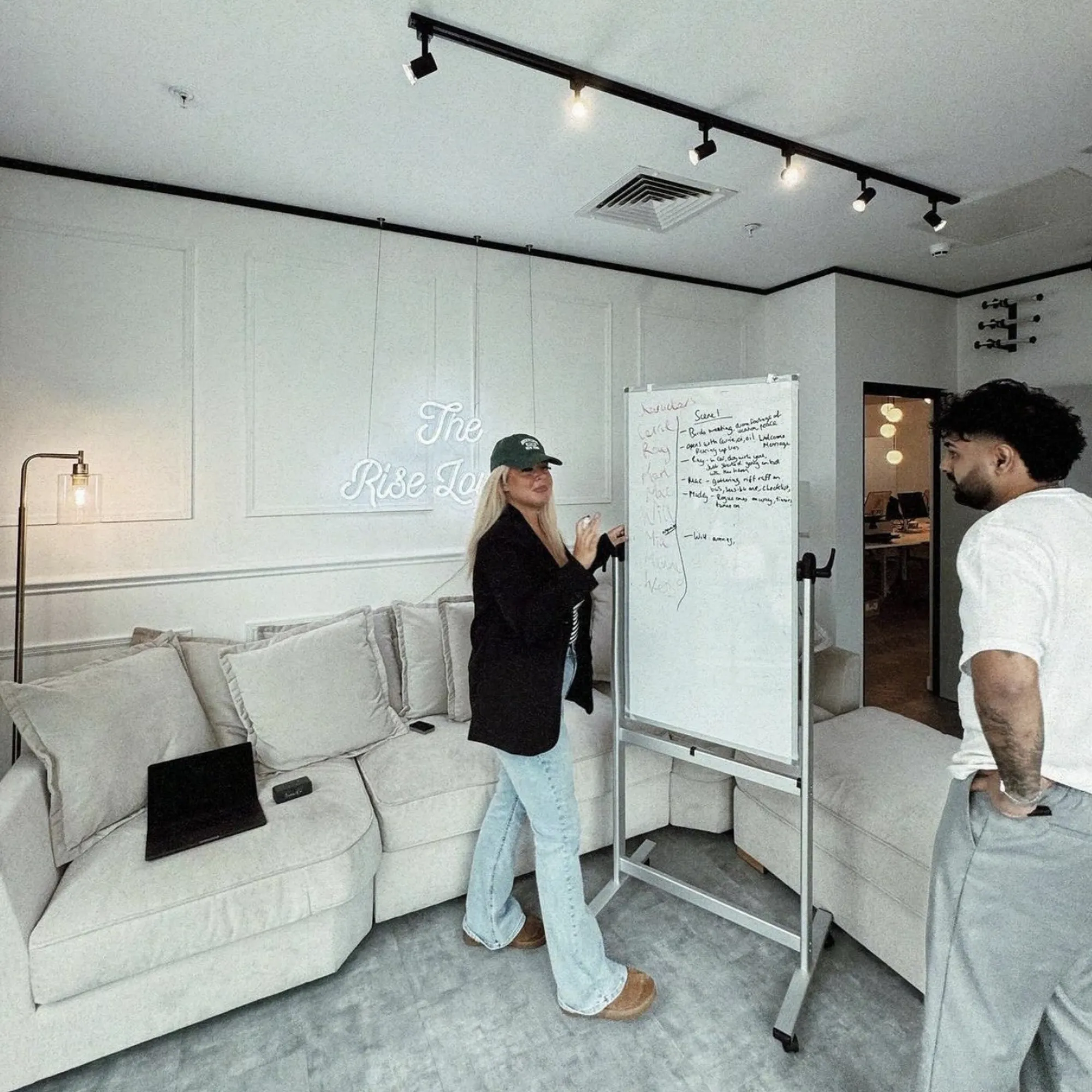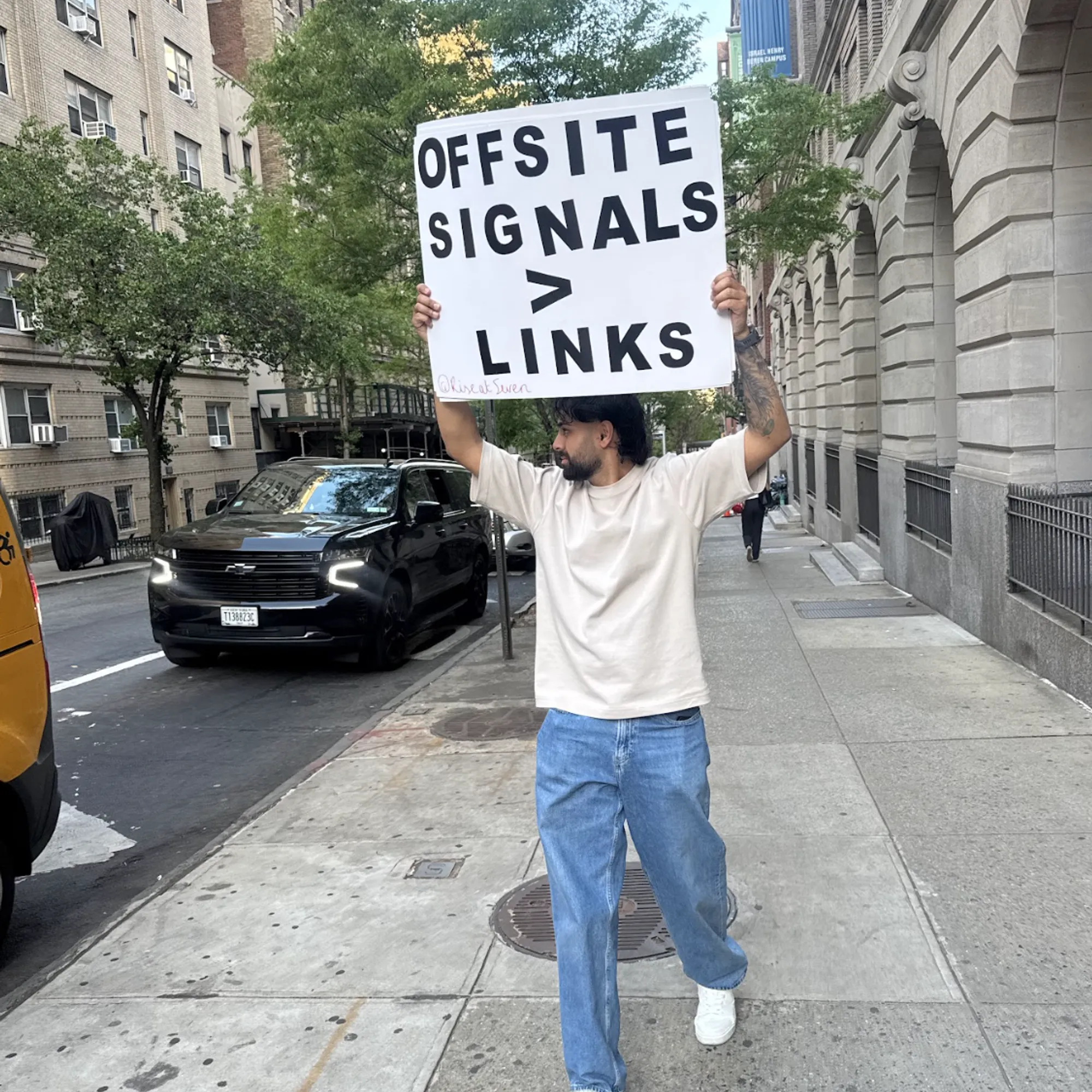
How to navigate the initial stages of the client/agency relationship

“Hey Nick,
We loved the pitch, especially when you said that really funny joke - I’ll be telling my grandchildren about that.
But yeah, we want to work with you, please can you send over a contract?
Thanks,
Client”
And like that, you have entered the initial stages of the client/agency relationship. Even if they thought you were great in the pitch, you walked the walk, they’re now paying cold hard cash so now you have to talk the talk.
In romantic instances, the first few months of a relationship can be a fun, albeit a confusing affair, where the people involved work each other out, their likes and dislikes and how to communicate to ensure they are getting what they want out of the relationship.
The first few months of the client/agency relationships follow a similar path, albeit a less romantic, more keeping clothes ON narrative.
With this in mind, I’m here to share some tips for how to successfully navigate your way through the initial phases. Think of me as your very own love guru, albeit less Mike Myers, less love and more healthy business relations.
Properly communicate
First things first, good communication is the bedrock to any successful relationship.
Making sure you’re regularly speaking to your client is essential throughout your relationship and is crucial to keeping both parties feeling like they were invited to the party.
Onboarding sessions are one of the most important parts of the initial relationship as they give both client and agency an open forum to ask questions.
Top tip, don’t use onboarding sessions just to get to know about the brand, use them to get to know the people behind the brand and the kind of support they need.
Find out how much they want to communicate and the way they like to communicate too. If they like Slack, set up a Slack channel. If they like pigeon post, buy a pigeon.
The thing about communication is that to communicate effectively, you don’t need to say much - rather you need to listen, cue Epictetus quote: 'We have two ears and one mouth so that we can listen twice as much as we speak.'
Listen to your client when they tell you something - don’t just hear, actually listen. Think about what they’re saying to you and why. Dig deeper, ask questions. Always ask why.
Also, this should go without saying, but be nice, ask them how they are - give a shit, they’ll appreciate it.
Manage expectations
Before you do anything, tell your client what they can expect to receive in the first 3 months that they’ll be working with you. You should have set expectations in the pitch (but we’re not all perfect) so if the first month of you working with them is going to be strategy focused, tell them in your onboarding session. Don’t expect your roadmap to tell them, they may not even look at it, so you (as the agency) need to explicitly say exactly what they’ll be getting for the first few months. It also helps to explain why these are the deliverables that they’ll be getting and why it’s important that certain tasks are prioritised.
Managing expectations doesn’t stop here, you should manage expectations if:
- You need more time for a task - tell your client well in advance, don’t wait until the due date, not send anything and expect them to be okay. Nope, give them the heads-up and tell them why and when they will get it.
- The results aren’t happening as quickly as you’d thought - if you think the results from your activity will start paying off after 6 months, tell your client. Things can take time to have an effect (especially when it comes to organic performance marketing) but not everyone knows this. Give your client an idea of when they can expect to see your hard work paying off.
Date and document
I’m not talking about your client, don’t do that...I’m talking roadmaps, call actions, meeting actions etc. In all interactions, you should be taking notes and following up with a list of actions, including who is responsible and the date that your client can expect to receive the action/when they are expected to send it.
Your client will want to know when they are getting the things they are paying for and chances are, your clients will be reporting to people above them so they also need to know when they’re getting things or doing things.
Be consistent, be reliable
Consistency shows reliability - clients need to be able to rely on their agencies. By all means, impress them with all of your good work in week 1, but don’t then slack off as the newness wears off.
Consistency can come in various forms and I’m going to cover two of these. The first is communication consistency. Send them weekly updates of what you’ve been working on each Friday and what you have planned for the upcoming week. Share roadmaps, tell clients what they can expect and when. Respond to requests within an agreed time frame, even if it’s to say that you’ll respond to their request properly at X date, letting them know that you’re on it will help build trust. Stick to the roadmap and if something's going to be late (it shouldn’t be, but these things happen), tell them well in advance.
The second consistency is in the form of work. Every piece of work shared should be at the same high level of quality. Anything less and you’ll piss them off and you don’t want that (think trust issues, budget pulling, you know, the horrible stuff). If you’ve done the work, ask someone to review it before sending it and get quality control.
Be spontaneous
Just because you're consistent, doesn’t mean you can’t be spontaneous. This doesn’t need to be extravagant gestures, more like doing something which adds some value and goes above what they’d expect from you. In a romantic relationship, this could be buying them a coffee without them asking you (you’ll know what they drink if you LISTEN to them). The point is, little unexpected gestures (nothing weird) show the client that you’re thinking about them and that you care. Keep an eye on their industry, share any news they may find interesting, go a little above your station. At the start of the relationship, these little things help the client know that you’re not going to sit on your laurels now that you’ve won the pitch.
Check-in
You’re doing everything that was agreed with the client (you even checked the contract to make sure) and they seem perfectly happy, great. Well, it’s great until they tell you that they’re not all that happy, or even worse, they tell your boss. ARRRRGH.
How to get around this - you ask them how they’re finding things, if they need anything more, if there’s anything they’re struggling with. It doesn’t need to be anything formal, just check in with the client, be there for them.
Follow the above and you’ll be well on your way to forging a successful client/agency relationship, just don’t let it drop after a few months. If you need more tips for building successful client relationships, feel free to drop me a note on Twitter.
Alternatively, if you’re a business wanting our help, get in touch here.
















